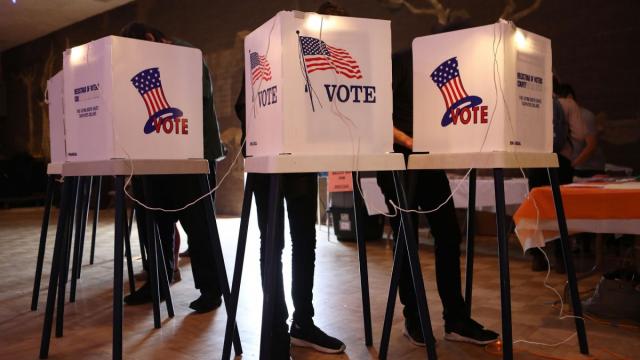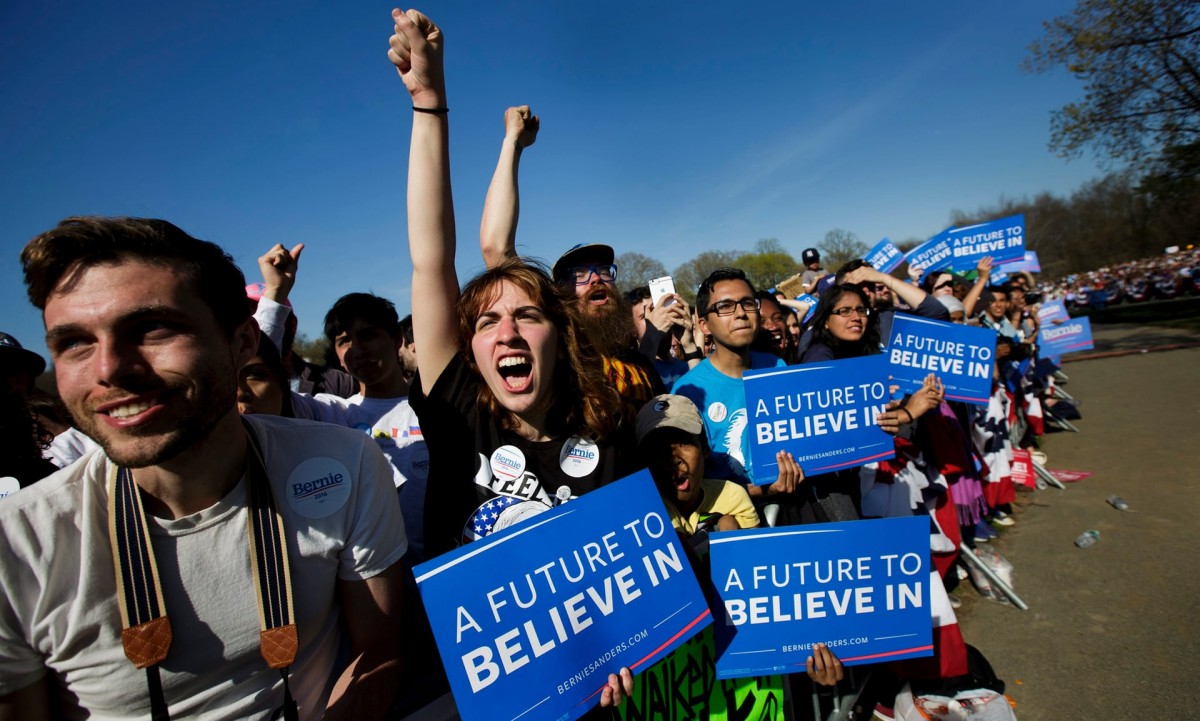
Ask countless Bernie Sanders supporters, and they’ll tell you a big reason he lost the Democratic party primaries is simple: the process was rigged. In one state after another, the votes by party elites – so-called “superdelegates” – counted more than those of regular members. And arduous voting requirements meant that countless people who would have voted for Sanders were denied that right. If the Democrats want any hope of voting Trump out of the White House, it is urgent they fix this broken system before the next election.
As a member of Sanders’ campaign, I’ll never forget watching the primary votes being counted for Michigan, one of the key states that decided the 2016 election. Sanders’ “pledged delegate count” – which reflected the number of votes he received from rank-and-file Democrats – exceeded Clinton’s by four. But after the superdelegates cast their ballots, the roll call registered “Clinton 76, Sanders 67”.
This repeated itself in other states. In Indiana, Sanders won the vote 44 to 39, but, after the super delegates had their say, Clinton was granted 46 delegates, versus Sanders’ 44. In New Hampshire, where Sanders won the vote by a gaping margin (60% to 38%) and set a record for the largest number of votes ever, the screen read “16 Sanders, 16 Clinton”.
Sanders “lost” those states because hundreds of superdelegates had pledged their votes long before the primaries and caucuses began. By including those prearranged votes, running media tallies reinforced the inevitability of a Clinton win and the common perception that the Democratic primary was “rigged”. In June, the Associated Press went so far as to call the primary in Clinton’s favor – before Californians even had a chance to cast their votes.
During the New York primary, between 3 and 4 million “unaffiliated” voters were disenfranchised due to a statute that required changing one’s party affiliation 25 days prior to the previous general election. In 2016, that deadline was 193 days before election day. Over a third of under-30 voters – Sanders’s core constituency – weren’t registered to any political party. When those young people tried to vote, they were turned away.
In New York and other Democratic-leaning states, primaries have serious consequences. For this year’s New York state primary, the deadline for unaffiliated voters to register Democratic is 11 months before the actual vote, a requirement that tilts the playing field in favor of incumbents. Unaffiliated voters wishing to support Cynthia Nixon’s bid for governor, for example, will never have had a chance to vote for her, because that deadline passed before she announced her candidacy. The Democratic party, in turn, forfeited its chance to attract millions of independent and unaffiliated voters to participate in its primary.
In 2016, the progressive grassroots wing of the Democratic party, which strongly supported Sanders, raised persistent alarms about the blatant structural bias of the primary system. The result was the formation of a tripartite Unity Reform Commission (with 10 representatives from the Clinton campaign, eight for Sanders, and three appointed by the chair).
The outcome of the election – Trump’s victory, widely perceived as a populist rejection of establishment politics – only increased the significance of the commission’s work, for soul-searching Democrats stung by bitter defeat. The commission’s consensus-drawn report, issued last December and endorsed by the Democratic party national chairman, Tom Perez, recommends that the number of superdelegates be reduced by 60%, and that state parties enact same-day voter registration and same-day party-switching. As an enforcement mechanism, state parties that don’t comply can be docked party convention delegates.
This summer, the Democratic National Committee (DNC) will consider these and other recommendations. These deliberations could fundamentally reshape the Democratic party, and American politics, for many years to come.
A “yes” vote for the Commission’s recommendations would diffuse the power of the Democratic party establishment and open the party to more progressive ideas and candidates. In places like New York, this could empower the progressive wing of the party, combat party-sanctioned voter suppression, and bring much-needed new blood to local and state politics.
Such a move could also recover some of the Democrats’ lost base. During Obama’s time as president, the Democratic party lost both chambers of Congress, nearly a thousand seats in state legislatures, and half of state governorships. In many parts of the country, Democrats have almost no political influence at all. The blue wave expected in 2018 could easily lose force if Democrats remain locked in internal struggles for control, rather than work together to expand their political horizon.
In the wake of misconduct by past party officials, such reforms could also help restore lost credibility by preventing those in power from putting their thumbs on the scale and allowing establishment politicians and big money undue influence. Superdelegates are drawn from entrenched party leadership, and in 2016, at least 63 of the 712 total were registered lobbyists, and 32 more “shadow lobbyists”, some of which were associated with big banks, payday lenders and large corporations.
More profoundly, however, the reforms could help salve Americans’ justified skepticism regarding our “rigged” political system – and finally live up to the promise of one-person, one-vote. A no vote, on the other hand, would have the opposite effect: severely undermine the Democratic party’s legitimacy as a democratic party, and risk repeating the grave mistakes that got us where we are now.














